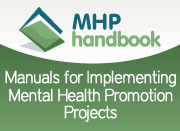Tools
- Utilities:
- Print this page
- Send this page
- Font size:
- Increase font size
- Decrease font size
How can employers promote good mental health? Live discussion
20/05/2014 - Submitted by: Tilia Bousios
Social care and healthcare are consistently ranked as among the most stressful fields to work in – perhaps due to a combination of the difficulty of the work itself, budget cuts, a high turnover of employees, and staff shortages. Statistics from the Health and Safety Executive show that, between 2009-12, those in health and social work professions experienced the highest rates of work-related anxiety, stress and depression of any field. Then there are the mental health issues triggered by the nature of social care and healthcare jobs, such as vicarious trauma, compassion fatigue or burnout.
There are signs that the situation has worsened in recent years, as resources have got smaller and caseloads larger. The 2012 State of Social Work report from the British Association of Social Work showed that 77% of social workers find their caseloads unmanageable, while 85% had experienced notable cuts to services in the previous 12 months.
Aside from the ethical obligation that employers have to ensure the wellbeing of their staff, be it physical or mental, there are also financial considerations. Employee absence due to stress costs the economy a huge amount of money each year. In an era of shrinking budgets, it is something that the health and social care sectors can ill afford, and an issue that must be taken seriously.
So, what can health and social care employers do to help reduce the number of employees affected by work-related mental illness, and support those affected? And if you work in the sector, what are the methods you can use to help self-care? We’ll be discussing these issues with a panel of experts on Friday 16th May between 12 – 2pm (BST).


